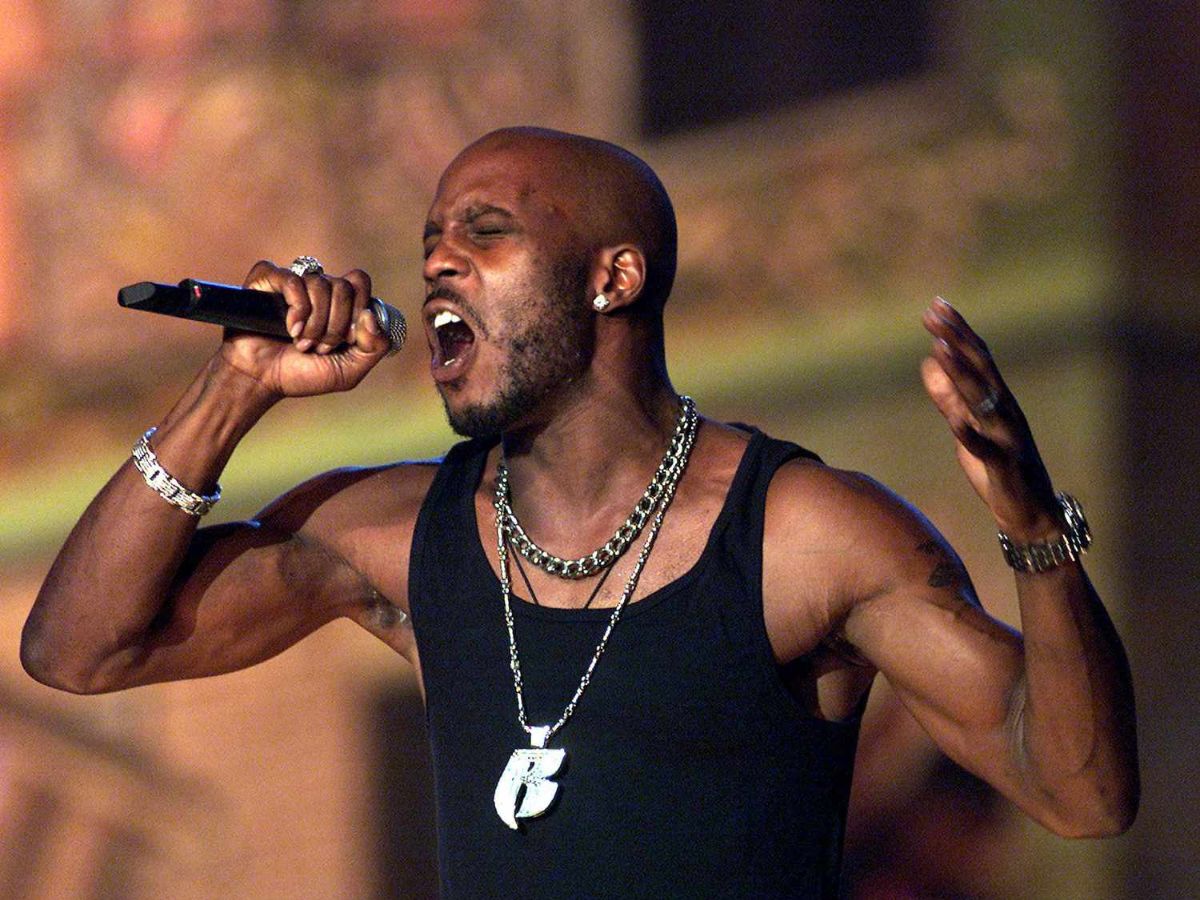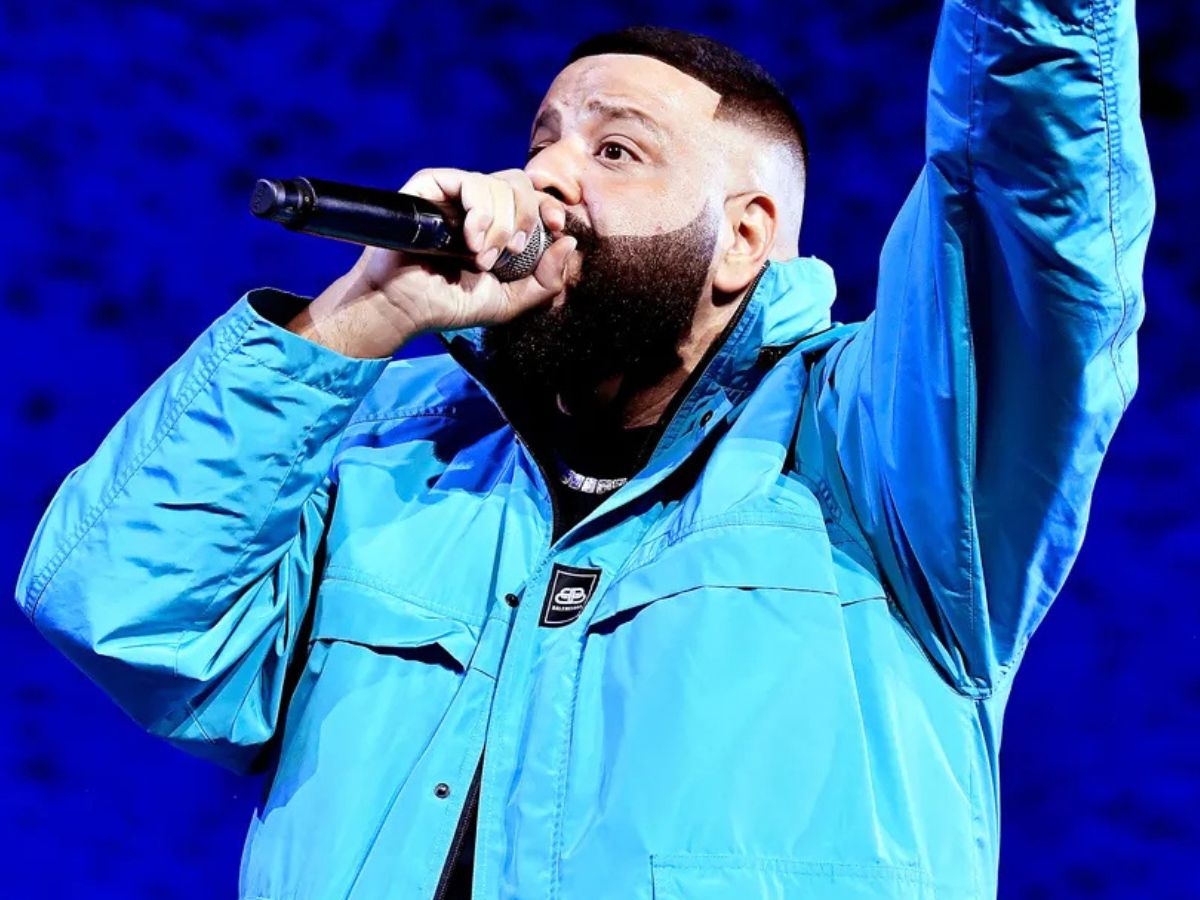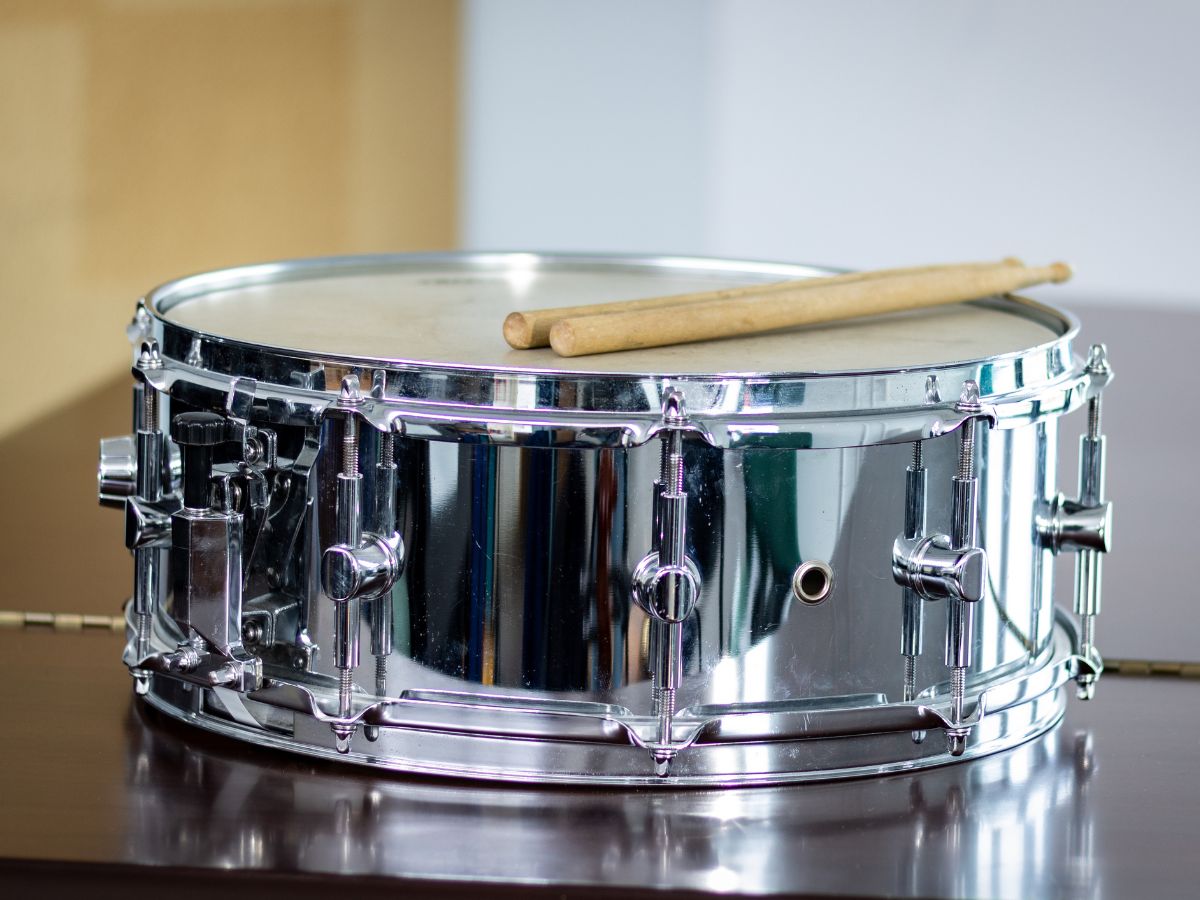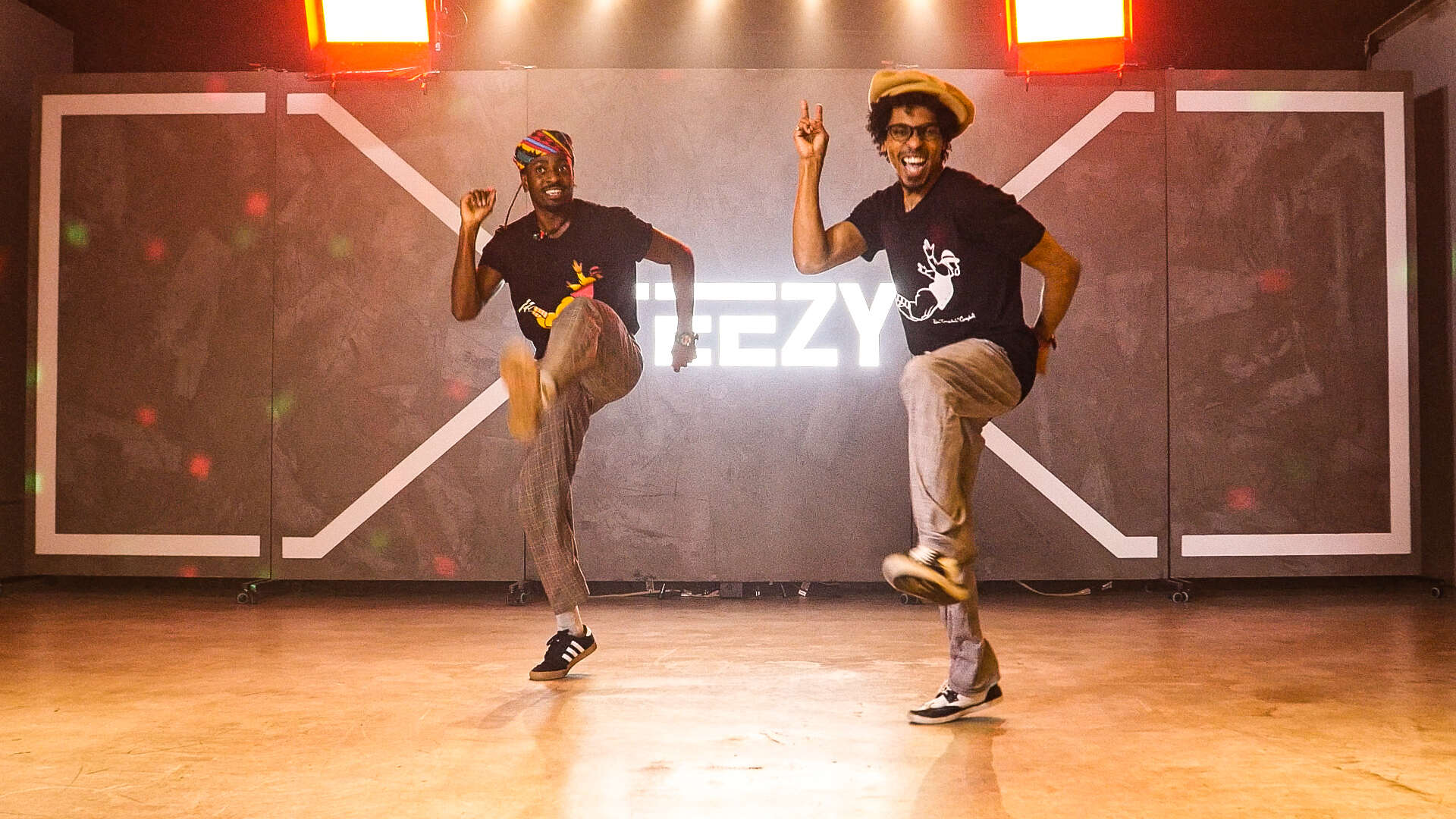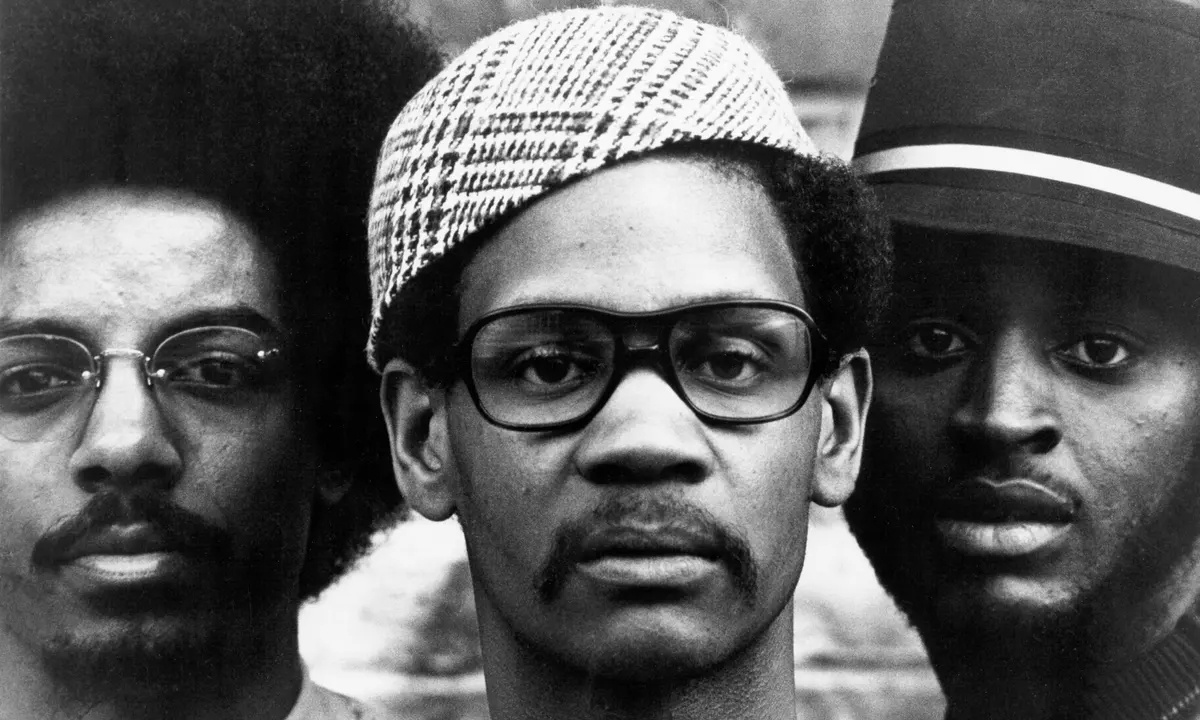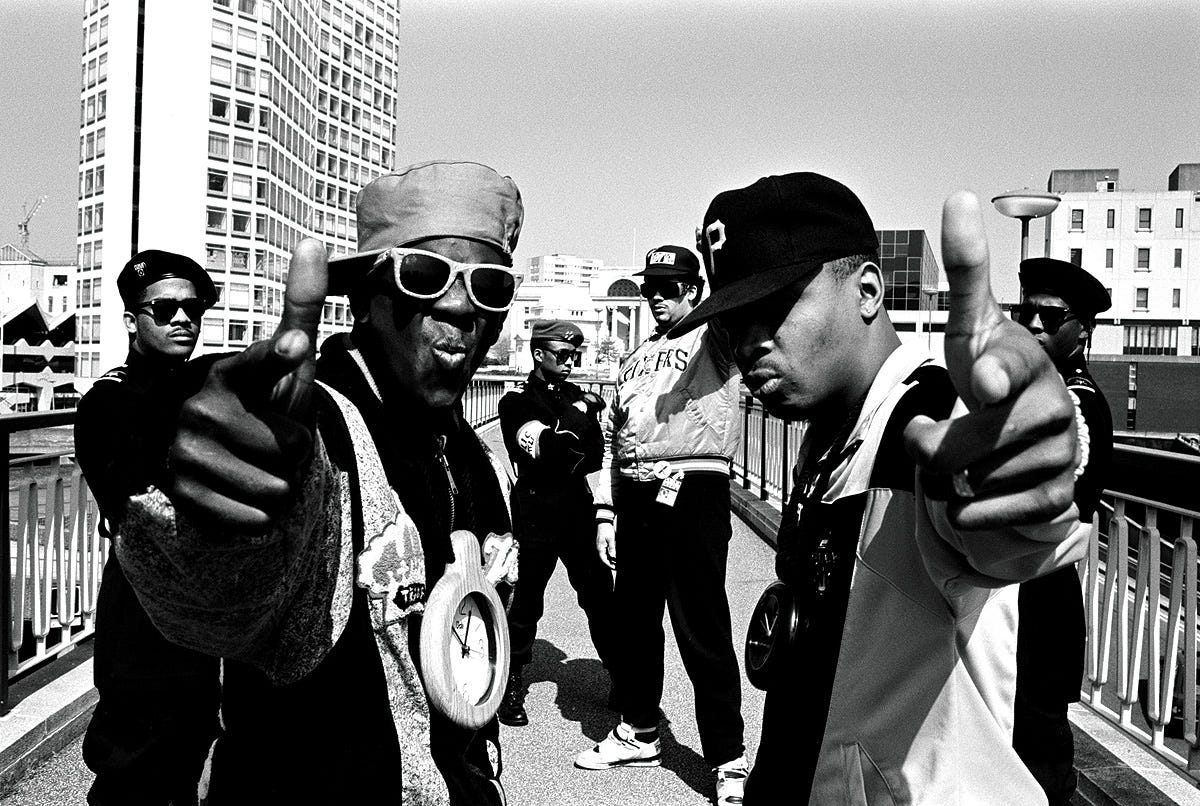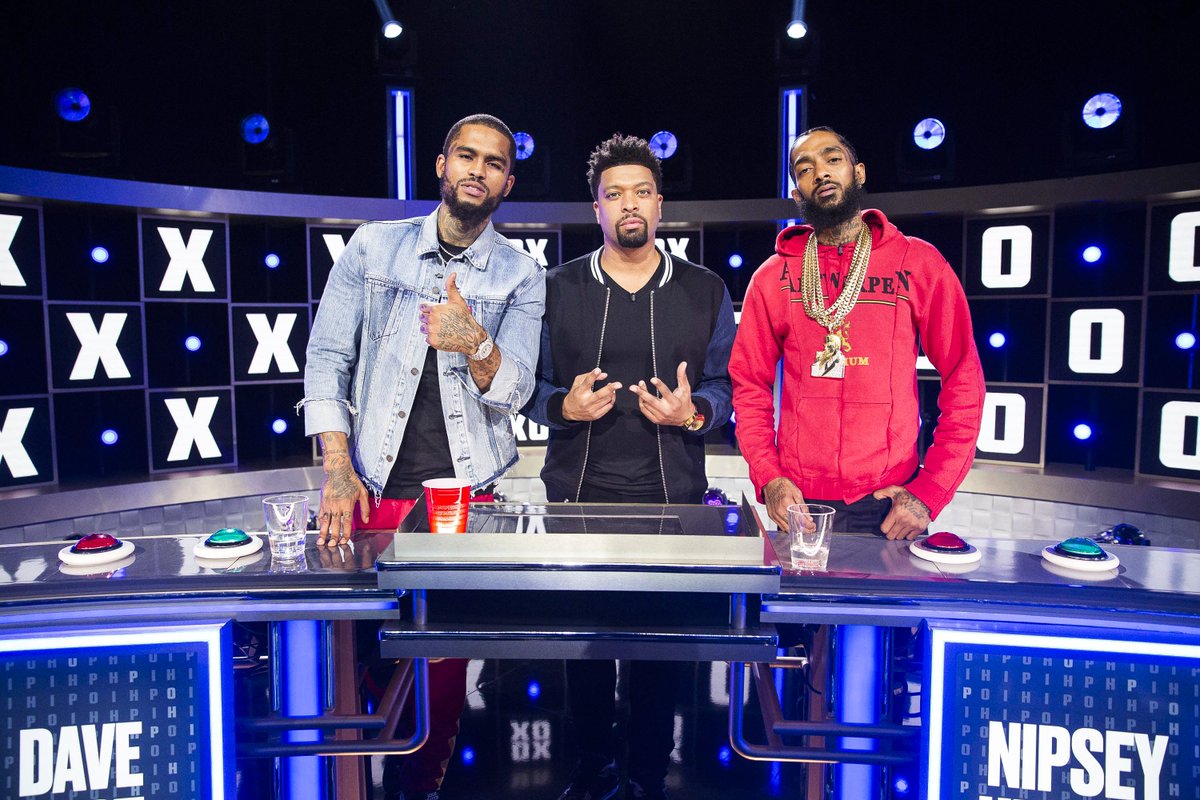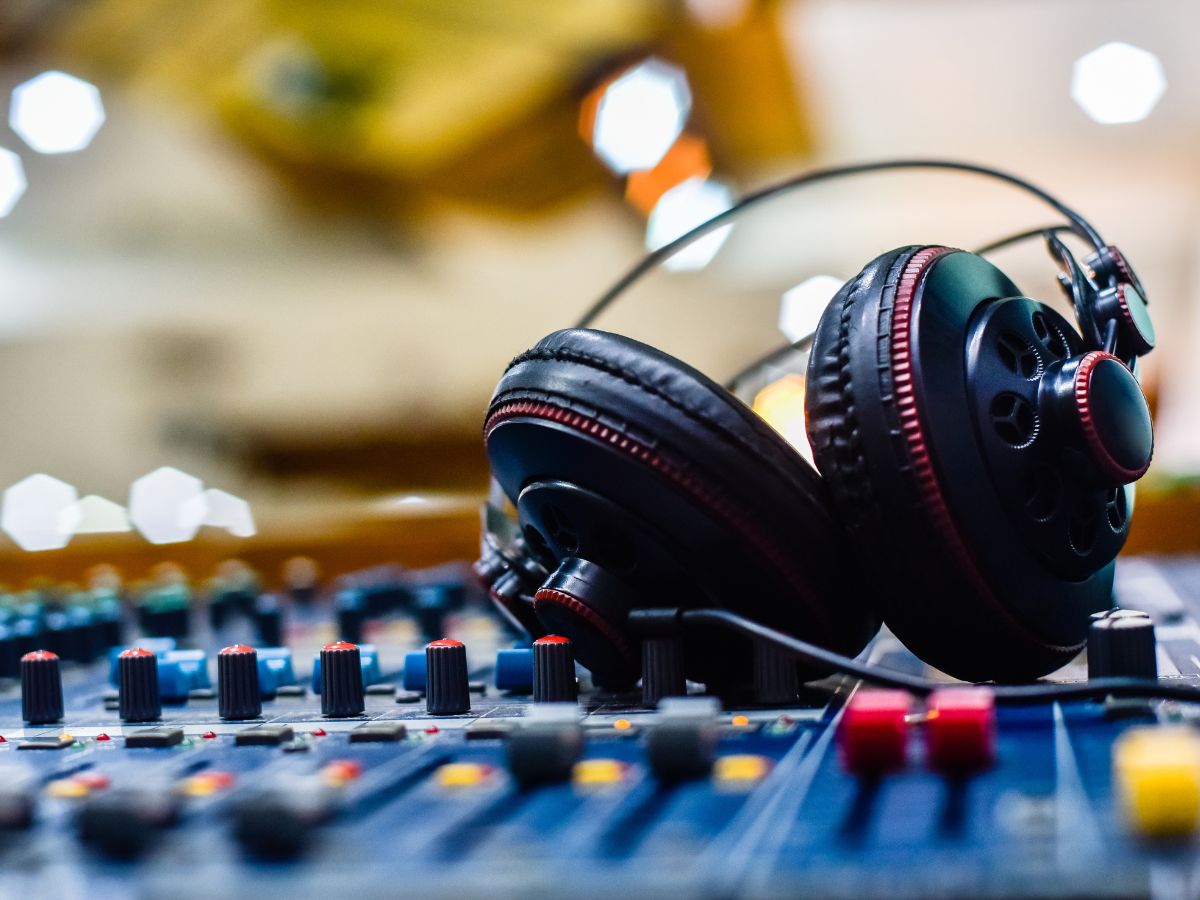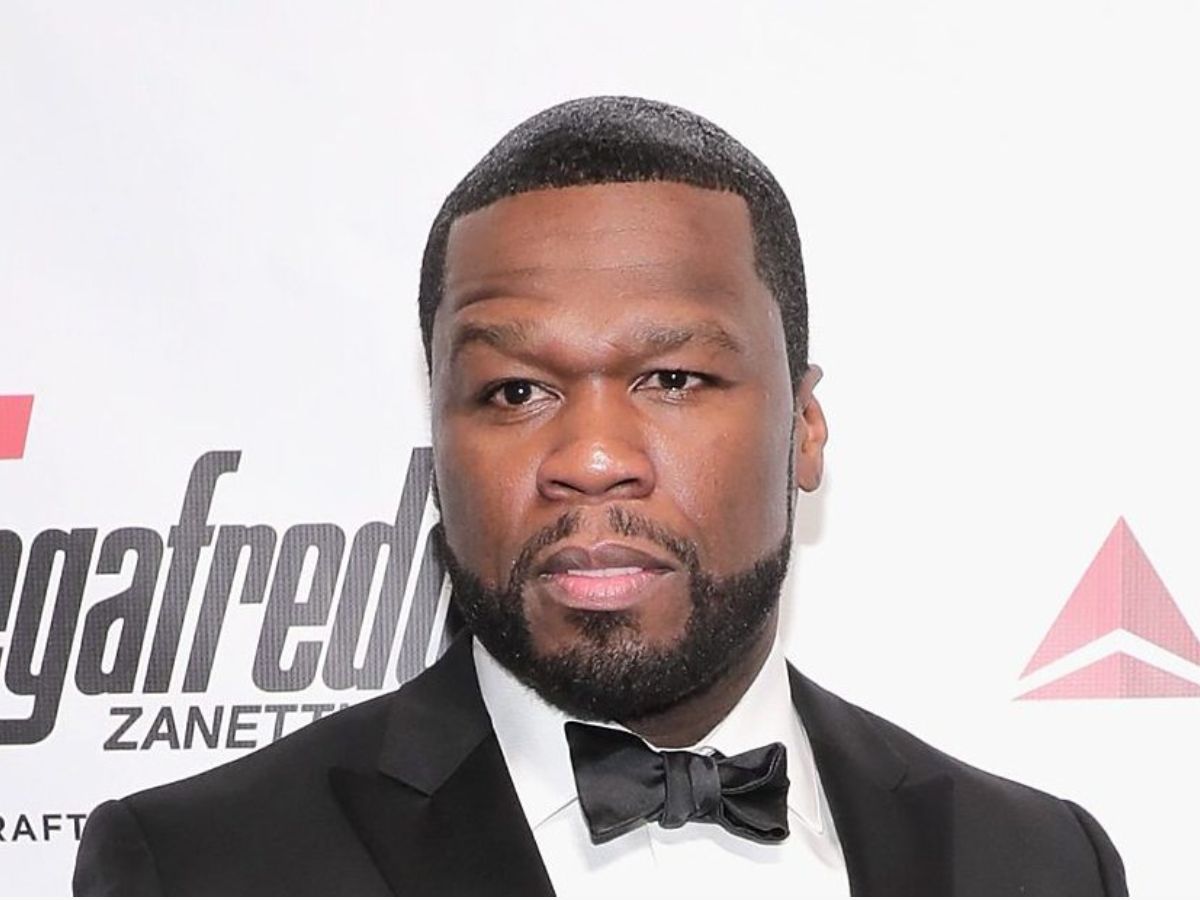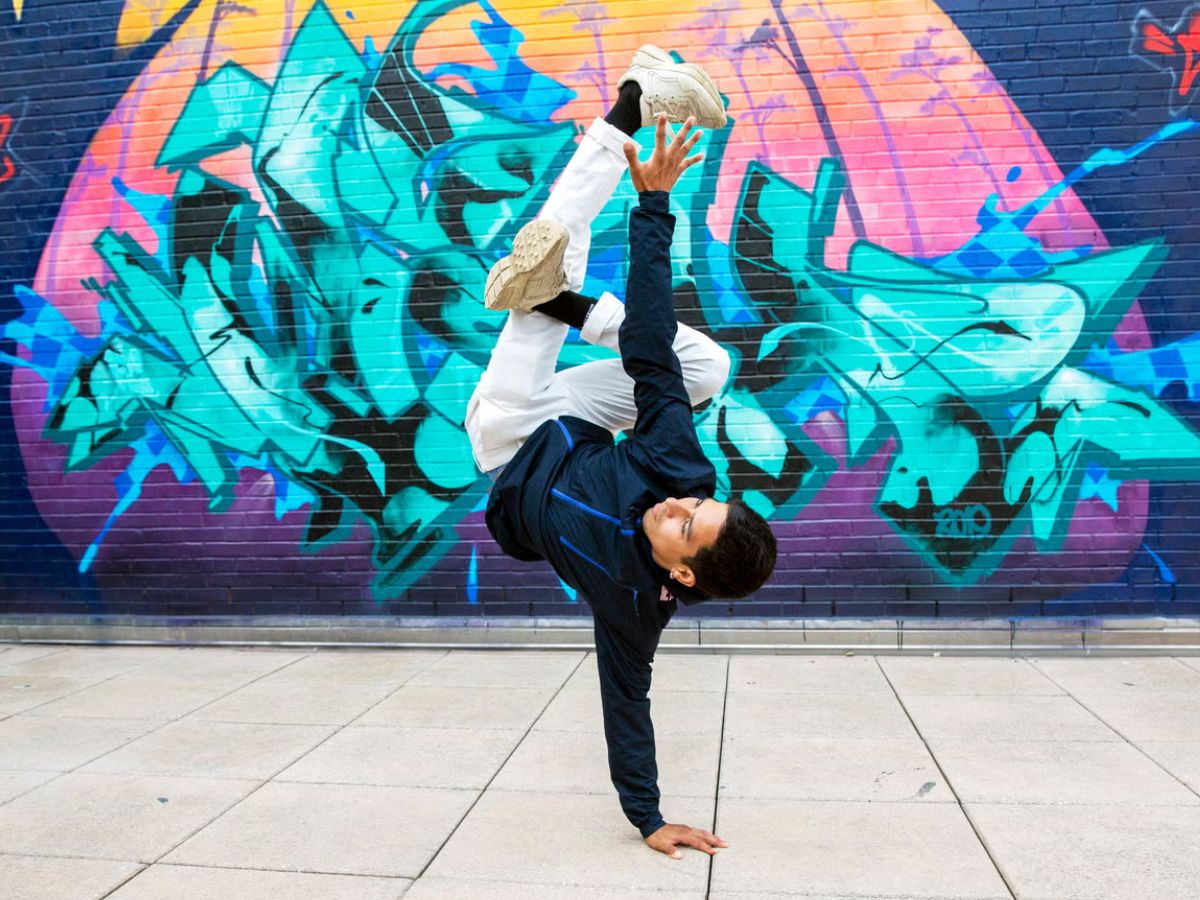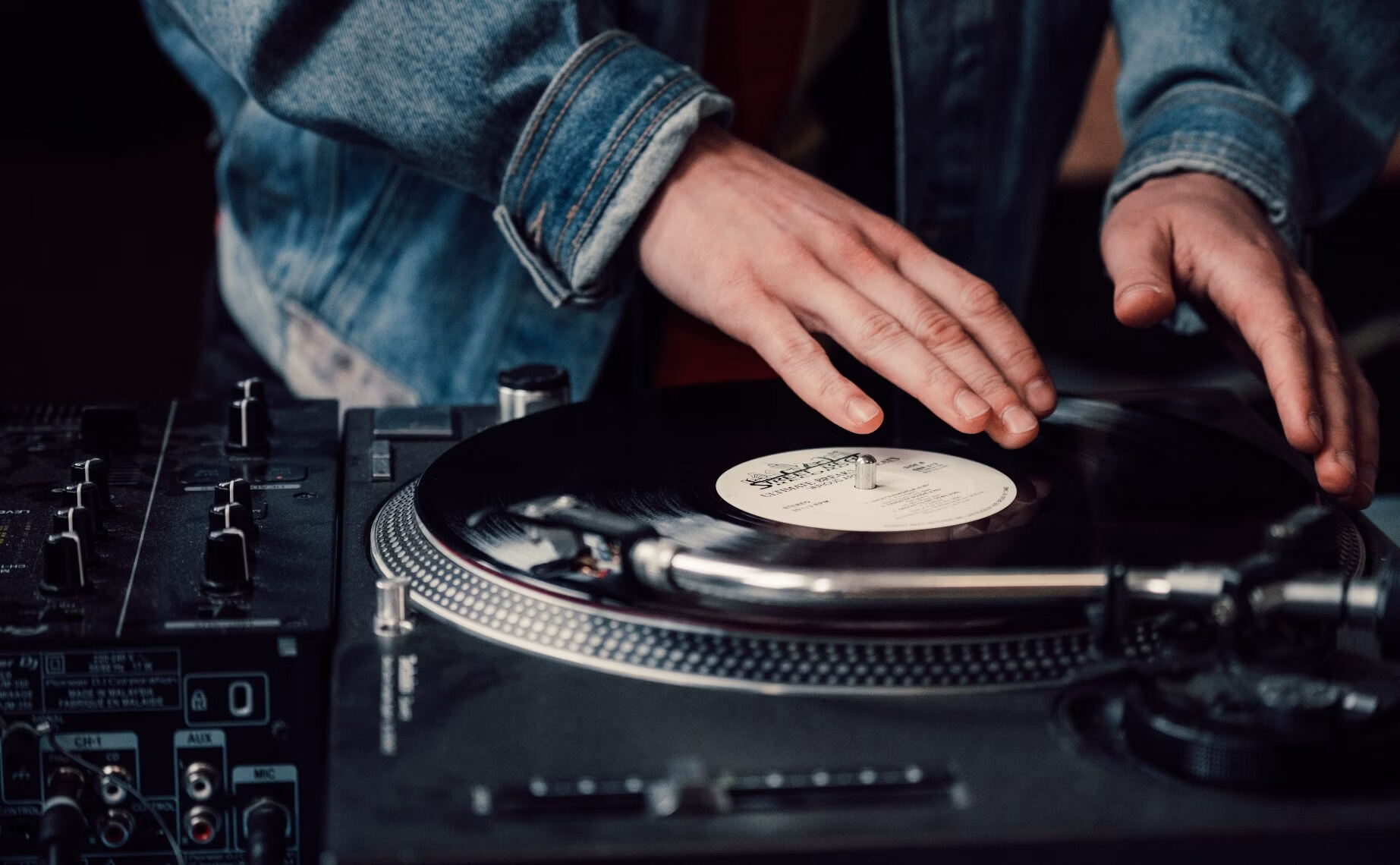

Hip Hop
What Is DJing In Hip Hop
Modified: March 4, 2024
Explore the art of DJing in Hip Hop and learn how it influences the genre's beats, rhythms, and overall culture. Discover the key techniques and equipment used by Hip Hop DJs.
(Many of the links in this article redirect to a specific reviewed product. Your purchase of these products through affiliate links helps to generate commission for AudioLover.com, at no extra cost. Learn more)
Table of Contents
Introduction
Hip Hop is a cultural phenomenon that has shaped music, fashion, and art for decades. At the heart of this vibrant and influential movement is the art of DJing. DJing, short for disc jockeying, involves the manipulation and mixing of recorded music to create a unique and immersive audio experience.
With its roots dating back to the early days of Hip Hop in the 1970s, DJing has evolved into a highly respected and integral component of the genre. From block parties in the Bronx to sold-out arenas around the world, DJs have been at the forefront of Hip Hop, not only in providing the beats and soundscapes but also in shaping the culture and community surrounding it.
In this article, we will delve into the history of DJing in Hip Hop, explore the role of a DJ in the Hip Hop culture, discuss the essential equipment required for DJing, highlight the techniques used by DJs, delve into DJ battles and competitions, examine the impact of digital technology on DJing, recognize some of the most influential Hip Hop DJs, and analyze the profound impact DJing has had on Hip Hop music as a whole.
Whether you are a Hip Hop enthusiast or simply curious about the art form, this article aims to provide an in-depth exploration of DJing in Hip Hop, celebrating its rich history, distinctive techniques, and enduring influence.
History of DJing in Hip Hop
The roots of DJing in Hip Hop can be traced back to the streets of the Bronx in the 1970s. During this time, block parties were a prominent part of the neighborhood culture, bringing people together through music and dance. It was in these vibrant street gatherings that DJing emerged as a powerful force in shaping the nascent Hip Hop movement.
In the early days, DJs such as Kool Herc, Grandmaster Flash, and Afrika Bambaataa played a pivotal role in defining the sound of Hip Hop. They incorporated influential techniques like breakbeat looping, scratching, and beatmatching to captivate audiences and create an infectious energy on the dance floor.
Kool Herc, known as the “Father of Hip Hop,” is credited with popularizing the fundamental elements of DJing. He revolutionized the party scene by extending the instrumental sections, or breaks, of popular songs, allowing dancers to showcase their moves during these extended grooves. Herc’s innovative use of two turntables and a mixer paved the way for future DJs to experiment and push the boundaries of the art form.
Grandmaster Flash, often recognized as one of the greatest DJs of all time, introduced a range of techniques that are now commonplace in DJing. He perfected beatmatching, the art of synchronizing the tempo of two different records, creating seamless transitions between tracks. Additionally, Flash developed the technique of scratching, manipulating the vinyl record back and forth against the turntable needle to create rhythmic and melodic effects.
Afrika Bambaataa, alongside his influential DJing skills, played a major role in the spread of Hip Hop culture. He formed the Zulu Nation, a collective of artists, DJs, and dancers, which not only championed the music but also promoted social awareness and unity within the Hip Hop community.
As the 1980s unfolded, DJing became an integral part of the evolving Hip Hop scene. DJs began to release their own mixtapes and albums, gaining recognition and creating an avenue for the spread of their unique sound. The popularity of DJ-driven music continued to grow, with DJs increasingly becoming the main attraction at parties and events.
Stay tuned for the next section as we uncover the crucial role that DJs play in the Hip Hop culture and community.
Role of a DJ in Hip Hop Culture
The DJ holds a significant position within Hip Hop culture, serving as a vital link between the music, the artists, and the audience. They are the architects of the musical landscape, curating the beats and sounds that define the essence of Hip Hop. The role of a DJ in Hip Hop culture goes beyond just playing songs; they are the ultimate tastemakers, trendsetters, and cultural ambassadors.
One of the primary responsibilities of a DJ in Hip Hop is to set the vibe and create an immersive experience for the audience. They have the power to control the energy of a room, transitioning seamlessly between different tracks and genres, and carefully curating the music to keep the crowd engaged and enthralled. Whether it’s a high-energy party or a more introspective set, the DJ’s ability to read the crowd and adapt their selection is crucial.
Moreover, DJs often serve as the voice and conscience of the community, using their platform to address social and political issues. Through their music selections and commentary, they have the power to educate, inspire, and empower the audience. Many DJs actively engage in activism and community work, utilizing their influence to bring attention to important social causes and movements.
In addition to their role as musical orchestrators, DJs also serve as connectors within the Hip Hop community. They have the unique ability to bridge gaps between artists, producers, fans, and industry professionals. By showcasing up-and-coming talent and providing platforms for collaboration, DJs play a pivotal role in fostering a sense of unity and collaboration within the Hip Hop community.
Furthermore, DJs serve as historians and guardians of the culture. They have an encyclopedic knowledge of Hip Hop history, including the pioneers, the classic tracks, and the influential albums. DJs often incorporate iconic samples and breakbeats from the past, paying homage to the roots and lineage of Hip Hop. They are responsible for preserving and passing on the cultural heritage of the genre to future generations.
In summary, the role of a DJ in Hip Hop culture extends far beyond playing records. They are the gatekeepers, the vibe setters, and the cultural custodians. Their ability to create an atmosphere, advocate for social change, and connect communities makes them an indispensable pillar of the Hip Hop movement.
Essential Equipment for DJing
At the core of DJing is the expert manipulation of music using a range of specialized equipment. Whether performing in clubs, at parties, or on stage, DJs rely on a set of essential tools to create seamless mixes and electrify the crowd. Let’s take a look at the key equipment that every DJ needs to elevate their performance:
- Turntables/CDJs: Turntables are the foundation of DJing. These rotating platters allow DJs to manipulate vinyl records, while CDJs provide similar functionality but with digital files. Turntables offer precise control over the music, allowing for beatmatching, scratching, and other performance techniques. CDJs, on the other hand, offer the convenience of digital storage and playback.
- Mixer: The mixer is the central hub where the DJ can blend and transition between multiple audio sources, such as turntables, CDJs, or other media players. It enables DJs to control the volume, EQ, and other audio effects, ensuring smooth transitions and a cohesive sound.
- Headphones: High-quality headphones are essential for DJs to cue and monitor tracks. These headphones provide accurate sound reproduction and superior noise isolation, allowing DJs to precisely match beats and create seamless transitions without any audio interference.
- Speakers: Powerful speakers are necessary to amplify the DJ’s mix and deliver the music to the audience. Whether it’s a small venue or a stadium-sized concert, DJs rely on professional-grade speakers to ensure an immersive and impactful sound experience.
- DJ Software: In the digital age, many DJs utilize software applications such as Serato, Traktor, or Rekordbox. These programs allow DJs to manipulate and organize their digital music library, apply effects, and control various aspects of their performance. DJ software also offers features like beatgridding, key detection, and looping, enhancing creativity and precision in mixing.
- Controller: A DJ controller is a compact device that integrates the functionality of turntables, mixer, and other equipment into a single unit. It typically includes jog wheels, faders, knobs, and buttons that emulate traditional DJ hardware. Controllers provide a portable and versatile option for DJs, especially those who prefer laptop-based setups.
These are the essential tools that DJs utilize to craft their performances and showcase their skills. However, it is worth noting that DJing is not solely dependent on the equipment. It is the creativity, technical proficiency, and musical selection of the DJ that truly sets them apart and creates an unforgettable experience for the audience.
Techniques in DJing
DJing is more than just playing music; it is an art form that requires a mastery of various techniques to create seamless mixes and captivating performances. From beatmatching to scratching, DJs employ a wide range of skills to manipulate and enhance the music. Here are some of the key techniques in DJing:
- Beatmatching: Beatmatching is the foundation of DJ mixing. It involves aligning the beats per minute (BPM) of two tracks to create a smooth transition between them. By adjusting the tempo or using pitch control, DJs ensure that the beats of two songs remain synchronized, maintaining a seamless flow.
- Phrasing: Phrasing is the art of identifying and mixing tracks that complement each other in terms of their musical structure. DJs pay close attention to the intro, verse, chorus, and breakdown sections of songs, carefully selecting tracks that harmonize and create a cohesive narrative on the dancefloor.
- EQ Mixing: Equalization (EQ) is used to manipulate the frequency range of individual tracks. DJs utilize the low, mid, and high-frequency bands to adjust the sound and blend the elements of different songs. By tweaking the EQ settings, DJs can emphasize or dampen certain elements, creating smooth transitions and harmonious blends.
- Transition Techniques: DJs employ different transition techniques to move from one track to another seamlessly. Some common techniques include the use of fade-ins and fade-outs, echo effects, filter sweeps, and quick cuts. These transitions add flair and excitement to the mix, engaging the audience and keeping them on their toes.
- Scratching: Scratching is a technique that involves manipulating the vinyl record on the turntable to create rhythmic and melodic effects. DJs use the crossfader, a feature on the mixer, to cut the sound in and out rapidly, producing distinctive scratching sounds. Scratching adds a dynamic and expressive element to DJ performances, allowing for improvisation and personal style.
- Looping and Sampling: Looping involves repeating a specific section of a track to create extended beats or melodies. DJs can loop drum patterns, vocal hooks, or instrumental loops to add depth and create a unique sound. Sampling, on the other hand, involves taking snippets of audio from one track and incorporating them into another, creating innovative and unexpected juxtapositions.
- Mashups and Remixing: DJs often create mashups and remixes by combining elements of different songs to create a new composition. This involves layering vocals, instrumentals, and other elements from multiple tracks to produce a fresh and unique sound. Mashups and remixes allow DJs to put their creative stamp on the music and showcase their ability to reimagine familiar songs.
These techniques represent the diverse range of skills that DJs utilize to craft their performances. By mastering these techniques, DJs can elevate their mixes, maintain the energy on the dancefloor, and deliver unforgettable experiences to their audiences.
DJ Battles and Competitions
DJ battles and competitions have long been a cornerstone of Hip Hop culture, showcasing the immense talent and skill of DJs in a competitive and electrifying environment. These events provide a platform for DJs to demonstrate their technical prowess, creativity, and showmanship, pushing the boundaries of their craft. Let’s explore the world of DJ battles and competitions:
B-Boy Battles: In the early days of Hip Hop, DJ battles emerged as a way to keep the energy alive during breakdance battles, also known as B-Boy battles. DJs would compete by throwing down their best tracks, with dancers battling it out on the dancefloor. The DJ’s ability to read the crowd and play the perfect beat was vital in determining the success of the B-Boy crew.
Turntablism Battles: Turntablism battles focus specifically on the technical skills and techniques of DJing, showcasing feats of scratching, beat juggling, and intricate mixing. Competitions like the DMC World DJ Championships have gained widespread recognition, attracting the best turntablists from around the globe. These battles highlight the precision, creativity, and innovation within the art of DJing.
Red Bull 3Style: Red Bull 3Style is a prestigious DJ competition that emphasizes the DJ’s ability to captivate different types of audiences. The format requires DJs to showcase their skills across multiple genres while maintaining high energy and seamless transitions. This competition celebrates the diversity and adaptability of DJs, pushing them to deliver dynamic performances.
Online DJ Battles: With the rise of social media and digital platforms, online DJ battles have become incredibly popular. DJs from all corners of the world can now showcase their skills and compete against one another virtually. Online battles provide a democratic platform for emerging talents to be discovered and recognized, fostering a global community of DJs.
Crowd Response and Judging: In DJ battles and competitions, the crowd’s response and the judging criteria play a significant role in determining the winner. DJs must not only exhibit technical proficiency but also connect with the audience, generate excitement, and display their unique style. Factors such as song selection, creativity, technical execution, stage presence, and crowd engagement are considered by judges to evaluate the performances.
DJ battles and competitions have not only pushed the boundaries of DJing but also contributed to the evolution of the art form itself. These events have become a breeding ground for innovation, with DJs constantly pushing the limits of what is possible on the turntables and beyond.
Stay tuned to discover how DJing has adapted to the digital age and the impact of technology on the art form.
DJing in the Digital Age
The digital age has revolutionized the landscape of DJing, introducing new technologies and tools that have transformed the art form. From digital music libraries to advanced software and controllers, DJs now have an expansive array of options at their disposal. Let’s explore the impact of technology on DJing in the digital age:
Digital Music Libraries: The shift from physical records and CDs to digital music files has been a game-changer for DJs. With the advent of platforms like Serato, Traktor, and Rekordbox, DJs can now access vast digital music libraries at their fingertips. This convenience allows for quick access to a wide range of tracks, eliminating the need to carry crates of vinyl or CDs to every gig.
Controllerism: Controllerism is an innovative approach to DJing that utilizes specialized controllers to manipulate and remix digital music. These controllers, often featuring pads, buttons, and knobs, provide a tactile experience and allow DJs to perform live remixes, triggering samples, loops, and effects on the fly. Controllerism has opened up new creative possibilities and expanded the boundaries of DJ performances.
Live Remixing and Production: With advancements in DJ software and hardware, DJs can now delve into live remixing and production during their sets. They can take individual elements from different tracks and combine them to create unique mashups, remixes, and edits. This real-time production adds a dynamic and personalized touch to DJ performances, allowing DJs to showcase their creativity and reinterpret popular songs.
Streaming Services: The rise of streaming services, such as Spotify and SoundCloud, has provided DJs with access to a vast catalog of music for exploration and discovery. DJs can search for new tracks, explore different genres, and discover hidden gems. Streaming services have become valuable tools for DJs to expand their music collections and stay up to date with the latest releases.
Social Media and Online Presence: In the digital age, DJs can now build a strong online presence through social media platforms like Instagram, Facebook, and YouTube. These platforms provide a way for DJs to connect with their audience, share their performances, and promote their brand. DJs can reach a global audience, collaborate with other artists, and showcase their unique style and skills through online platforms.
Virtual DJing and Livestreaming: The COVID-19 pandemic further accelerated the adoption of virtual DJing and livestreaming. DJs embraced online platforms like Twitch and YouTube to perform live sets, engage with their fans, and continue sharing their music during lockdowns and social distancing restrictions. Virtual DJing has provided a way for DJs to connect with a worldwide audience, even in times when physical gatherings are not possible.
The digital age has undeniably transformed DJing, providing DJs with an abundance of tools, resources, and opportunities. While the fundamentals of DJing remain the same, technology has allowed for greater creativity, accessibility, and connectivity. DJs continue to adapt and push the boundaries, harnessing the power of technology to create unforgettable performances and shape the future of DJing.
Famous Hip Hop DJs
Hip Hop has been blessed with a plethora of talented and influential DJs who have made significant contributions to the genre. These DJs have not only shaped the sound of Hip Hop but have also played pivotal roles in pushing the culture forward. Let’s take a look at some of the most famous and influential Hip Hop DJs:
Grandmaster Flash: Considered a pioneer and one of the greatest DJs of all time, Grandmaster Flash revolutionized the art of DJing. Known for his impeccable mixing skills and innovative techniques like beatmatching and scratching, he played a vital role in the early development of Hip Hop and laid the foundation for turntablism.
Kool Herc: Known as the “Father of Hip Hop,” Kool Herc is credited with inventing the breakbeat technique and hosting legendary parties in the Bronx during the 1970s. His innovative use of two turntables and a mixer paved the way for DJs to manipulate records and extend the instrumental breaks, giving birth to the Hip Hop movement.
Afrika Bambaataa: Afrika Bambaataa played a pivotal role in spreading Hip Hop culture beyond New York City. As the founder of the Universal Zulu Nation, he brought together artists, DJs, and dancers, using music as a tool for peace, unity, and social activism. Bambaataa is known for his eclectic music selections and blending various genres into his mixes.
Jam Master Jay: As the DJ for the iconic rap group Run-DMC, Jam Master Jay elevated the importance of the DJ within the Hip Hop landscape. His turntable skills and musical contributions became an integral part of Run-DMC’s groundbreaking sound, defining the crossover between rock and Hip Hop.
Jazzy Jeff: DJ Jazzy Jeff, along with Will Smith as DJ Jazzy Jeff & The Fresh Prince, gained mainstream success with hits like “Parents Just Don’t Understand” and “Summertime.” Known for his soulful mixing style and impeccable scratch techniques, Jazzy Jeff helped popularize Hip Hop in the 1980s and 1990s.
Q-Bert: DJ Q-Bert is a legendary turntablist known for his mind-blowing scratching skills and innovative techniques. He co-founded the influential Invisibl Skratch Piklz and has won multiple DJ championship titles, solidifying his status as one of the most technically skilled DJs in the world.
DJ Premier: DJ Premier is a legendary producer and DJ, known for his signature production style and contributions to the iconic rap group Gang Starr. With his jazz-infused beats and impeccable scratching, DJ Premier helped shape the sound of East Coast Hip Hop and remains an influential figure in the genre.
The Mixtape DJs: DJ Clue, DJ Drama, DJ Khaled, and many others have made their mark through mixtapes, showcasing their skills in blending and remixing tracks from various artists. These DJs heavily influenced the mixtape culture and played a significant role in breaking new artists and shaping the sound of contemporary Hip Hop.
These are just a few of the many incredible DJs who have left an indelible mark on Hip Hop. Their technical expertise, innovative techniques, and creative contributions have helped shape the genre and push its boundaries to new heights.
Impact of DJing on Hip Hop Music
The impact of DJing on Hip Hop music cannot be overstated. DJs have played a crucial role in shaping the sound, culture, and evolution of the genre. Their contributions have influenced not only the music itself but also the way Hip Hop is performed, consumed, and experienced. Let’s explore the significant impact of DJing on Hip Hop music:
Beat Creation and Sampling: DJs have been instrumental in creating the rhythmic foundation of Hip Hop through beat creation and sampling. By manipulating records and blending different sounds, DJs have crafted innovative beats, laying the groundwork for emcees to deliver their lyrics. DJs like DJ Premier and J Dilla are known for their impeccable ability to sample and create hypnotic loops, elevating the production value of Hip Hop music.
Breakbeat Culture: DJs introduced the concept of breakbeats, which became a fundamental element of Hip Hop music. Breakbeats are short drum sections taken from existing records, with DJs identifying and isolating the most danceable and rhythmically engaging parts. By extending these breaks and looping them, DJs created the foundation for emcees and B-Boys to showcase their skills, leading to the birth of Hip Hop culture.
Turntablism and Scratching: The emergence of turntablism and scratching as DJ techniques had a profound impact on Hip Hop music. DJs like Grandmaster Flash and DJ Q-Bert pushed the boundaries of what could be done on the turntables, incorporating scratches, cuts, and rhythmic variations into their mixes. Scratching became not only a signature element of DJ performances but also a unique and expressive form of musical artistry within Hip Hop.
Music Discovery and Exposure: DJs have long been tastemakers and influential figures in breaking new artists and exposing audiences to fresh sounds. Through their mixes, radio shows, and club performances, DJs have introduced the world to up-and-coming talent and underground music scenes. Their ability to curate and share music has played a vital role in the growth and diversification of Hip Hop, especially in recognizing and amplifying regional and independent artists.
Live Performances and Crowd Engagement: DJs have transformed the live performance aspect of Hip Hop, bringing their unique skills and energy to the stage. Whether it’s through turntable tricks, beat juggling, or real-time remixing, DJs captivate audiences and create an interactive and immersive experience. DJs can read the crowd, adapt their set on the fly, and control the energy of a live event, making them an essential component of successful Hip Hop concerts and shows.
Pushing the Boundaries of Genre: DJs have continually pushed the boundaries of Hip Hop by incorporating elements from various genres. From blending jazz and funk samples with rap lyrics to infusing electronic and rock influences into Hip Hop beats, DJs have experimented and evolved the sound of the genre. This fusion of different styles has expanded the sonic palette of Hip Hop, allowing for innovation and ensuring its continued relevance and growth.
The impact of DJing on Hip Hop music is undeniable. DJs have shaped the genre’s sound, pioneered new techniques, and created a vibrant culture surrounding the art of DJing. Their contributions continue to inspire and influence not only within the Hip Hop community but also across the broader music landscape.
Conclusion
DJing is an integral and transformative element of Hip Hop culture. From its early roots in the streets of the Bronx to its global prominence today, DJing has played a crucial role in shaping the sound, identity, and community of Hip Hop. Through the mastery of techniques like beatmatching, scratching, and sampling, DJs have elevated the art form and created immersive experiences for audiences around the world.
The history of DJing in Hip Hop is rich with pioneers and innovators who have pushed the boundaries of what can be achieved on the turntables. The contributions of iconic DJs like Grandmaster Flash, Kool Herc, and DJ Premier have laid the foundation for future generations to build upon and have influenced not only the genre itself but also music as a whole.
The role of a DJ in Hip Hop extends beyond just being a selector of tracks. DJs are the architects of the sonic landscape, the connectors of communities, and the cultural tastemakers. Their ability to set the vibe, engage the crowd, and navigate through different genres and eras has given birth to new sub-genres, collaborations, and movements within Hip Hop.
In the digital age, DJs have embraced new technologies, including digital music libraries, controllers, and streaming services, to continue pushing the boundaries of creativity and live performances. Online platforms and social media have provided avenues for DJs to reach a global audience and connect with fans worldwide, further expanding the influence and impact of DJing in Hip Hop.
Through DJ battles and competitions, DJs have proven their technical skills, showmanship, and ability to captivate audiences. These events have become platforms for sharing talent, discovering new artists, and pushing the art form to new heights.
The impact of DJing on Hip Hop music is vast and perpetual. DJs have been instrumental in beat creation, sampling, shaping the genre’s sound, breaking new artists, and creating electrifying live performances. Their contributions have resonated beyond Hip Hop, influencing music production techniques and DJ culture across genres and around the world.
In conclusion, DJing is an essential pillar of Hip Hop, a cultural force that continues to evolve and thrive. The artistry, technical skills, and creativity of DJs have shaped the genre’s past, present, and will undoubtedly shape its future. DJing will forever be intertwined with Hip Hop, ensuring that the culture remains vibrant, influential, and cherished by generations to come.

